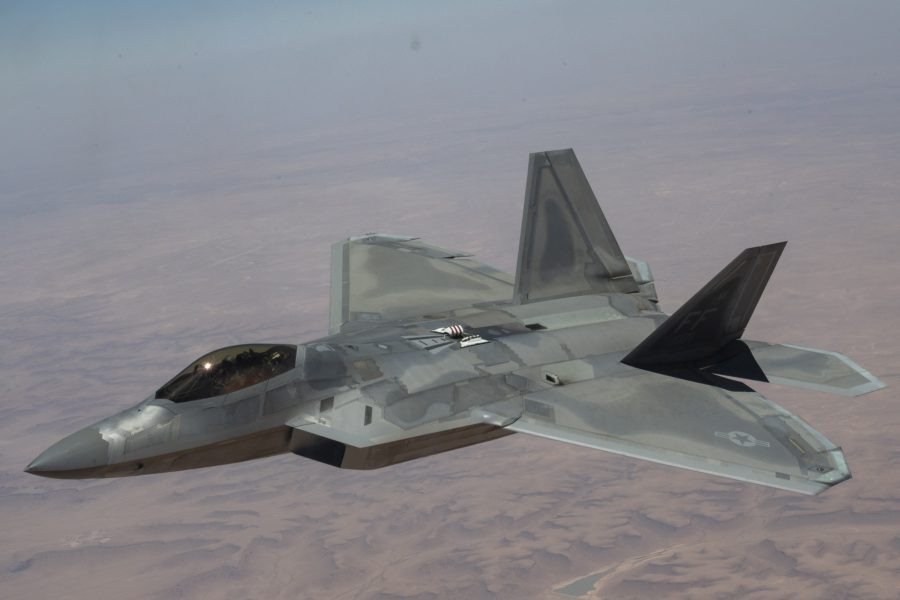
The F-22 Raptors, advanced fifth-generation fighter jets known for their stealth and superior combat capabilities, are being sent to key bases in the Middle East. This deployment is seen as a response to growing tensions and evolving threats in the area, including regional conflicts and the presence of hostile forces. The addition of these jets is expected to enhance the US's ability to project power and maintain air superiority in a complex and dynamic environment.
US military operations in the Middle East span a broad range of activities, from counter-terrorism to strategic deterrence. With an estimated 30,000 to 45,000 troops stationed across more than a dozen countries in the region, the US maintains a significant military presence. This includes air bases, naval facilities, and ground forces strategically positioned to respond to various contingencies.
The introduction of the F-22 Raptors is also part of a broader modernization effort aimed at maintaining technological superiority over potential adversaries. These jets are equipped with cutting-edge avionics and weapon systems, providing a significant edge in both air-to-air and air-to-ground combat scenarios. Their stealth capabilities enable them to operate effectively in contested environments, making them a critical asset for the US military's strategic objectives in the region.
This deployment comes at a time of heightened regional tensions, including ongoing conflicts and shifting alliances. The US's strategic interests in the Middle East are multifaceted, encompassing energy security, counter-terrorism, and regional stability. By enhancing its military capabilities, the US aims to deter potential aggressors and reassure its allies of its commitment to regional security.
The F-22 deployment also underscores the US's ongoing commitment to its defense partnerships in the Middle East. Allied nations have been closely coordinating with the US to address mutual security concerns and enhance interoperability. The presence of advanced fighter jets like the F-22 supports these partnerships by providing a tangible demonstration of American military support and readiness.
This move is part of a larger trend of increasing military investments and upgrades in the Middle East. As regional dynamics continue to evolve, the US is adapting its strategies to address new challenges and maintain its influence. The deployment of F-22 Raptors represents a key component of this strategy, aimed at ensuring that the US remains well-positioned to respond to emerging threats and support its regional allies.
The US military's focus on technological advancement and strategic positioning reflects a broader commitment to maintaining a robust and adaptable force capable of addressing a wide range of security issues. As the situation in the Middle East continues to develop, the deployment of these advanced aircraft will play a crucial role in shaping the region's security landscape and supporting US interests.
Topics
Spotlight
